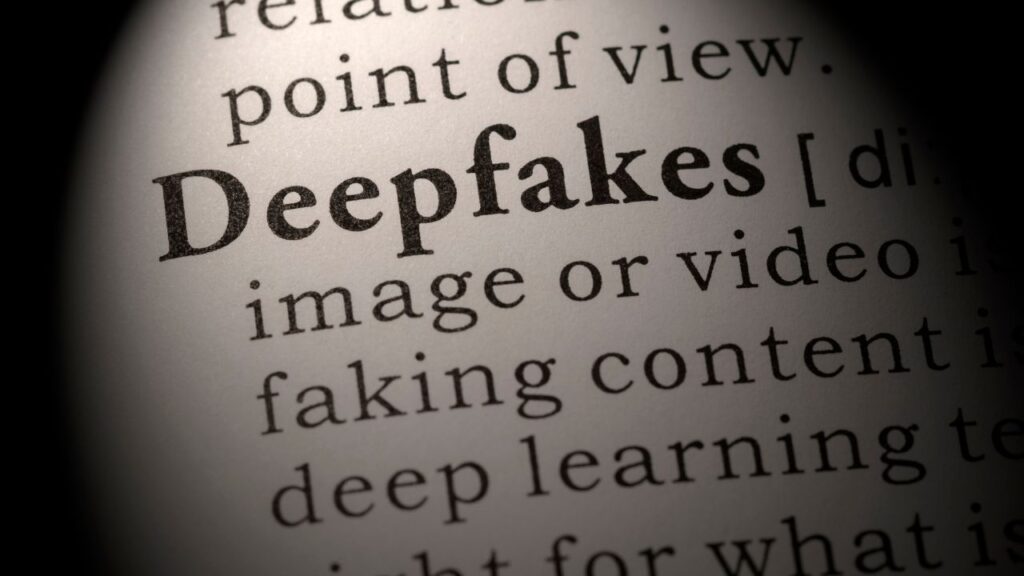 In today’s digital age, advancements in technology have brought about incredible innovations that have revolutionized how we live, work, and communicate. However, amidst these marvels, there exists a dark and deceptive phenomenon known as deepfake. With its potential to manipulate reality and deceive the masses, deepfake technology raises profound ethical and moral concerns that echo themes found in the timeless wisdom of the Bible.
In today’s digital age, advancements in technology have brought about incredible innovations that have revolutionized how we live, work, and communicate. However, amidst these marvels, there exists a dark and deceptive phenomenon known as deepfake. With its potential to manipulate reality and deceive the masses, deepfake technology raises profound ethical and moral concerns that echo themes found in the timeless wisdom of the Bible.

Deepfake refers to the use of artificial intelligence (AI) and machine learning algorithms to create highly realistic videos, audio recordings, or images that depict individuals saying or doing things they never actually did. From altering speeches of public figures to creating fabricated scenes of celebrities, deepfake technology has the power to blur the lines between truth and fiction with unprecedented precision.
The Dangers of Deception
At its core, deepfake represents a profound challenge to the concept of truth itself. In a world where digital manipulation can fabricate seemingly authentic content, distinguishing between reality and falsehood becomes increasingly difficult. This poses significant risks, not only in the realms of politics and entertainment but also in matters of personal identity, privacy, and security.
Biblical Parallels
The Bible warns us of the dangers of
deception and false prophets who masquerade as bearers of truth. In Matthew 24:24, Jesus cautions his disciples, saying, “For false messiahs and false prophets will appear and perform great signs and wonders to deceive, if possible, even the elect.” This prophetic warning underscores the insidious nature of deception and the need for discernment in distinguishing genuine from counterfeit.
In the Shadow of the Great Deceiver

Central to the biblical narrative is the figure of Satan, the ultimate deceiver, who seeks to undermine God’s truth and lead humanity astray. In 2 Corinthians 11:14, we read that “Satan himself masquerades as an angel of light.” This imagery of deception and disguise serves as a sobering reminder of the subtle tactics employed by the forces of darkness to deceive and corrupt.
Echoes of Deepfake
The parallels between the deceptive nature of deepfake technology and the warnings of false prophets in the Bible are striking. Just as deepfake videos can convincingly impersonate individuals, false prophets seek to mimic the truth while distorting it for their own nefarious purposes. Both phenomena prey on our vulnerabilities and exploit our trust, leading us down paths of falsehood and confusion.
Discerning Truth in a Digital Age

In light of these dangers, how are we to navigate the treacherous waters of deception in a digital age? The answer lies in cultivating discernment and anchoring ourselves in the unchanging truths of God’s Word. As Ephesians 6:14 exhorts us, “Stand firm then, with the belt of truth buckled around your waist.” By immersing ourselves in the teachings of Scripture and seeking wisdom from God, we can guard against the subtle deceptions that threaten to ensnare us.
A Call to Vigilance
The rise of deepfake technology serves as a sobering reminder of the enduring relevance of biblical wisdom in confronting the challenges of our time. Just as the Bible warns us to beware of false prophets and deceptive schemes, we must remain vigilant in discerning truth from falsehood in an increasingly digital world. By staying rooted in the truth of God’s Word and exercising discernment, we can safeguard ourselves against the insidious forces of deception that seek to undermine our faith and distort reality.
In the age of deepfake technology, the timeless wisdom of the Bible offers invaluable insights into the nature of deception and the importance of discernment. As we navigate the complexities of a digital world fraught with manipulation and deceit, let us heed the warnings of Scripture and stand firm in the truth that sets us free. By anchoring ourselves in the unchanging truths of God’s Word, we can confront the challenges of deception with clarity, conviction, and unwavering faith.


 In today’s digital age, advancements in technology have brought about incredible innovations that have revolutionized how we live, work, and communicate. However, amidst these marvels, there exists a dark and deceptive phenomenon known as deepfake. With its potential to manipulate reality and deceive the masses, deepfake technology raises profound ethical and moral concerns that echo themes found in the timeless wisdom of the Bible.
In today’s digital age, advancements in technology have brought about incredible innovations that have revolutionized how we live, work, and communicate. However, amidst these marvels, there exists a dark and deceptive phenomenon known as deepfake. With its potential to manipulate reality and deceive the masses, deepfake technology raises profound ethical and moral concerns that echo themes found in the timeless wisdom of the Bible.





















0 Comments